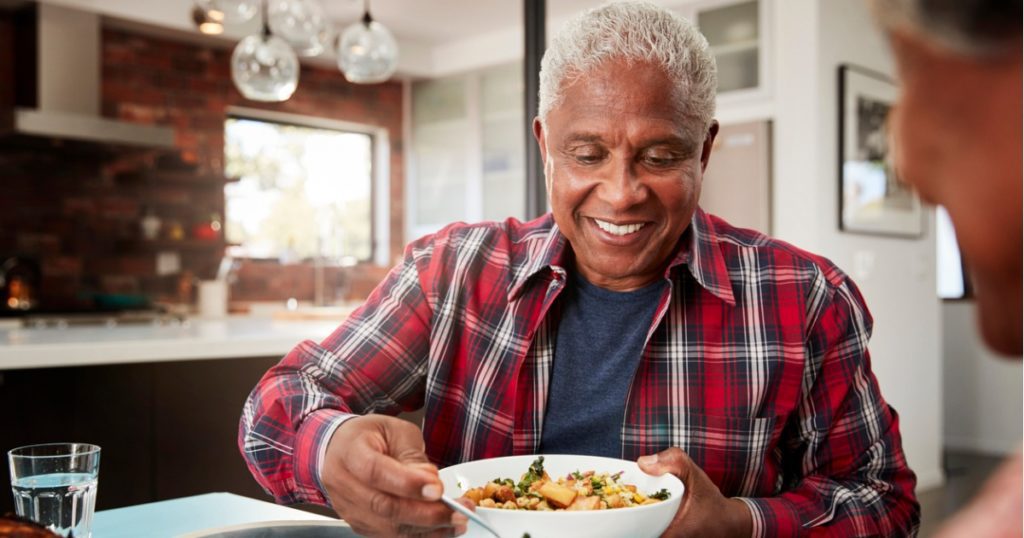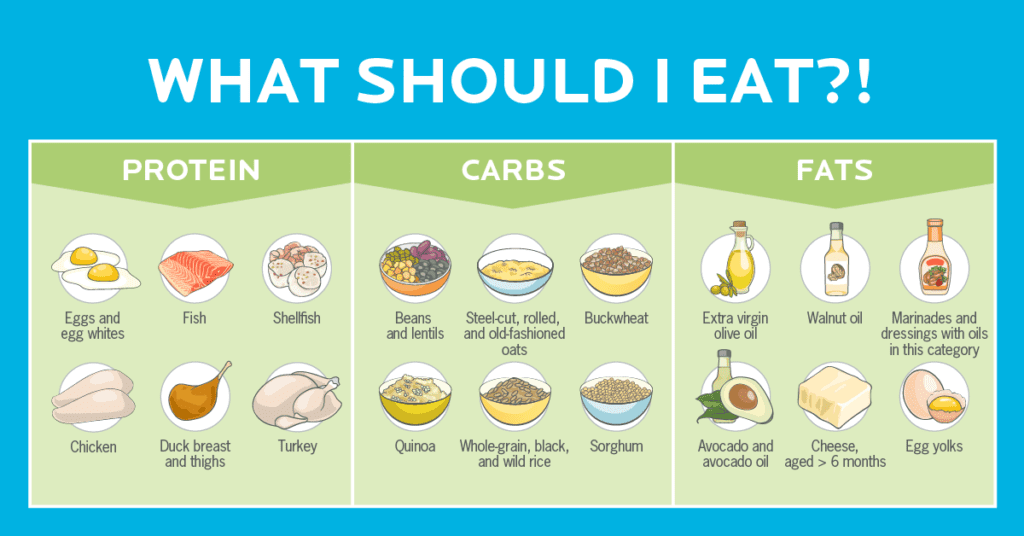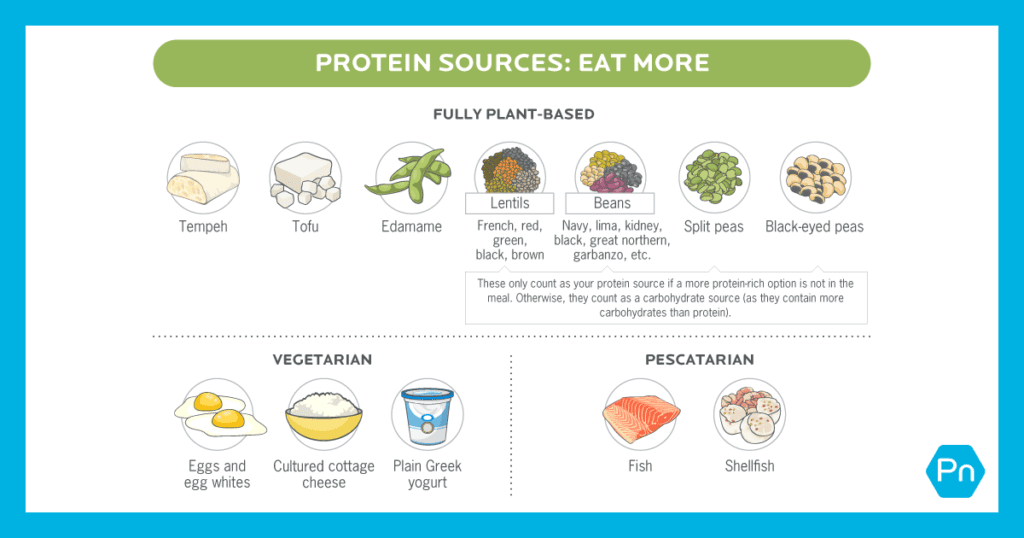‘What can I eat on a fully plant-based diet?!’
Whether you’re new to the world of 100% plant-based eating or an experienced vegan looking for some more variety, it’s natural to wonder about your options.
Carrots and broccoli are a given.
But what about plant-based and vegan “meat” products? Are they worth trying?
Plus, plant-curious folks have been warned it’s hard to get enough protein on a plant-based diet, or that they need to be extra careful to avoid deficiencies. Understandably, they want to make sure they’re meeting their needs.
So often, our clients want to know things like:
- Is peanut butter a decent source of protein?
- How often should I eat soy?
- Since I don’t eat fish, which healthy fats should I incorporate?
- Can you eat pasta? (Please say yes.)
Questions like these are why we created this easy-to-use, visual food list for fully plant-based and vegan eaters.
It’s designed to help you make choices that align with your needs, whether you’ve been living fully plant-based for years or are a total newbie.
Fair warning: We’re not going to give you an official fully plant-based food list divided into “approved” and “off-limits” categories.
That often leads to feelings of frustration and deprivation. And it rarely helps people find an approach they can sustain.
Instead, we’ll show you how to think about plant-based foods on a spectrum from “eat more” to “eat some” to “eat less.”
Use this continuum to make choices that are “just a little bit better,” whether you’re browsing the grocery store aisles, cooking a homemade meal, or ordering from a menu.
As a bonus, we’ve provided space to create your own personal plant-based foods continuum. That way, you can build a delicious menu of healthy options that are right for YOU.
(And if you want a FREE fully plant-based nutrition plan that instantly gives you the amounts of calories, protein, carbs, and fat you need to achieve your goals, check out the Precision Nutrition Calculator.)
Download this infographic for your tablet or printer and use the step-by-step process to decide which foods line up with your (or your clients’) goals.

If you’re a coach, or you want to be…
You can help people build sustainable nutrition and lifestyle habits that will significantly improve their physical and mental health—while you make a great living doing what you love. We'll show you how.
If you’d like to learn more, consider the PN Level 1 Nutrition Coaching Certification. (You can enroll now at a big discount.)




Share